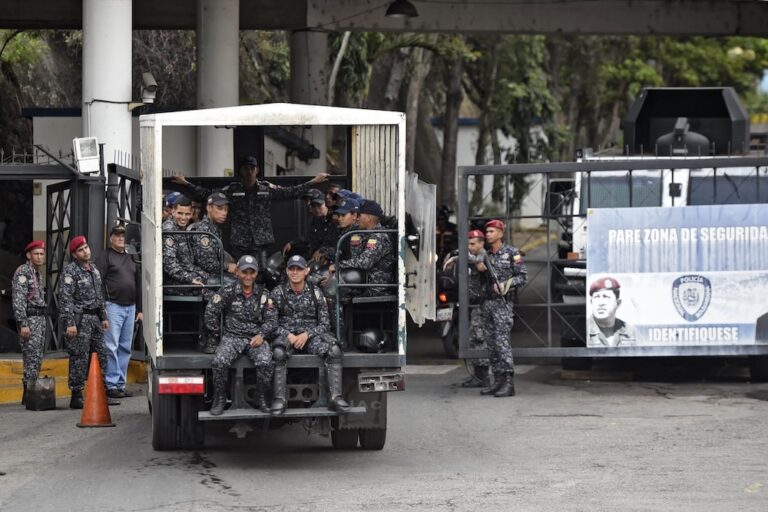The Unfreedom Monitor report provides insights into the current state of freedom in Venezuela and highlights challenges faced by journalists and media in the country.
This statement was originally published on globalvoices.org on 25 May 2023.
Authoritarian regimes have long had a complicated relationship with media and communications technologies. The Unfreedom Monitor is a Global Voices Advox research initiative examining the growing phenomenon of networked or digital authoritarianism. This extract is of the executive summary of the report on Venezuela, from the series of reports to come out of the research under the Unfreedom Monitor. Read the full report here.
Since 2007, democracy and freedom of expression in Venezuela have been disrupted through severe censorship and legal strategies against traditional and independent media, and the reductions of separation of powers to the point where they are practically nonexistent. In this context, the role of digital and social media are fundamental elements to overcome the government’s dominance of print and broadcast media and evade the censorship established by the Venezuelan regime.
However, the use of digital tools to fight back against repression has been accompanied by another phenomenon: the use of these very tools of digital communications to repress citizens. This is the effect of “networked authoritarianism.” The use of digital media to guarantee access to information has been met by the government’s disinformation campaigns, internet blocking and judicial persecution of journalists and activists that investigate Maduro’s government or talk about the humanitarian emergency. Internet blockades and censorship of digital media don’t only affect journalists and human rights defenders: they also control and silence opinion and public discussion, the diffusion of free and diverse thought, and inhibit the work of opposition politicians, human rights defenders, humanitarian workers, activists, public personalities, and citizens in general that question and report the actions of the Venezuelan regime.
Surveillance without legal justification, arbitrary monitoring of citizens, and the use of technology to manipulate election results have also changed the political and social landscape in Venezuela, and have established a surveillance state focused on the persecution and criminalization of dissident voices.
The key motives for digital authoritarianism in Venezuela are focused on the crackdown on opposition political actors and dissident voices, the distribution of propaganda to justify and falsify support for Maduro’s government, and the use of technology to falsify the numbers of such support. In this sense, identification systems have also been used to discriminate between Maduro’s critics and supporters.
Venezuelan dissident voices have been largely ignored since the early 2000s, despite substantial political and civil coordination against Chávez’s and Maduro’s authoritarian practices. It must be noted that political and civil structures are both equally stigmatised, criminalised, and persecuted by security bodies and legal institutions across the country.
Read the full report here.




